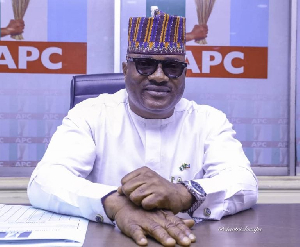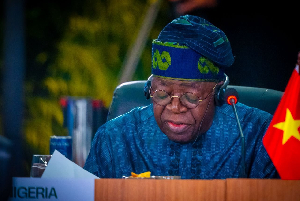A member of the All Progressives Congress National Working Committee, Tolu Bankole, has hailed the Reserved Seats for Women Bill, joining rights advocates and Nigerian political stakeholders in pressing for its swift passage.
The APC national leader for Persons with Disabilities gave the commendation in a statement issued in Abuja on Sunday.
The bill seeks to create 37 additional seats in the Senate, 37 in the House of Representatives, and three reserved seats per state in all 36 state assemblies—strictly for female candidates.
Currently slated for a third reading in October, the proposed legislation will then be transmitted to state houses of assembly before heading to the President for assent.
Women’s representation in Nigeria’s legislature has remained abysmally low, with only 3.7 per cent of Senate seats and 3.9 per cent in the House of Representatives currently occupied by women.
In his statement, Bankole, who described the bill as “timely and reflective of the nation’s readiness,” also called for the same affirmative action to extend to Persons With Disabilities.
He said, “Women are the engine room of development. No women, no nation. Nigerian women are not only beautiful but also smart, responsive, caring, responsible, competent, and reliable. Their managerial ingenuity is both distinguished and honourable.
“They are the backbone of every successful household and, by extension, of organisations and nations. Their inclusion in political leadership will enrich decision-making, drive innovation, and strengthen our democracy.”
The APC chieftain equally appealed to lawmakers at both state and national levels to ensure a speedy passage of the legislation while incorporating provisions for PWDs:
“I respectfully urge our distinguished legislators to pass this all-important bill without delay and to extend the same treatment to Persons With Disabilities, who remain among the most vulnerable in our society.”
Among other things, Bankole highlighted the qualities women bring to management and politics, including breaking stereotypes, offering diverse perspectives, demonstrating collaborative leadership, and serving as role models for future generations.
He also stressed the need to recognise the rights and potential of PWDs, advocating for their inclusion in the reserved seats initiative.
“Affirmative action for PWDs is not just an act of compassion but a national imperative to harness the skills and insights of millions of Nigerians who face systemic barriers,” he stated.
Politics of Sunday, 28 September 2025
Source: www.punchng.com













